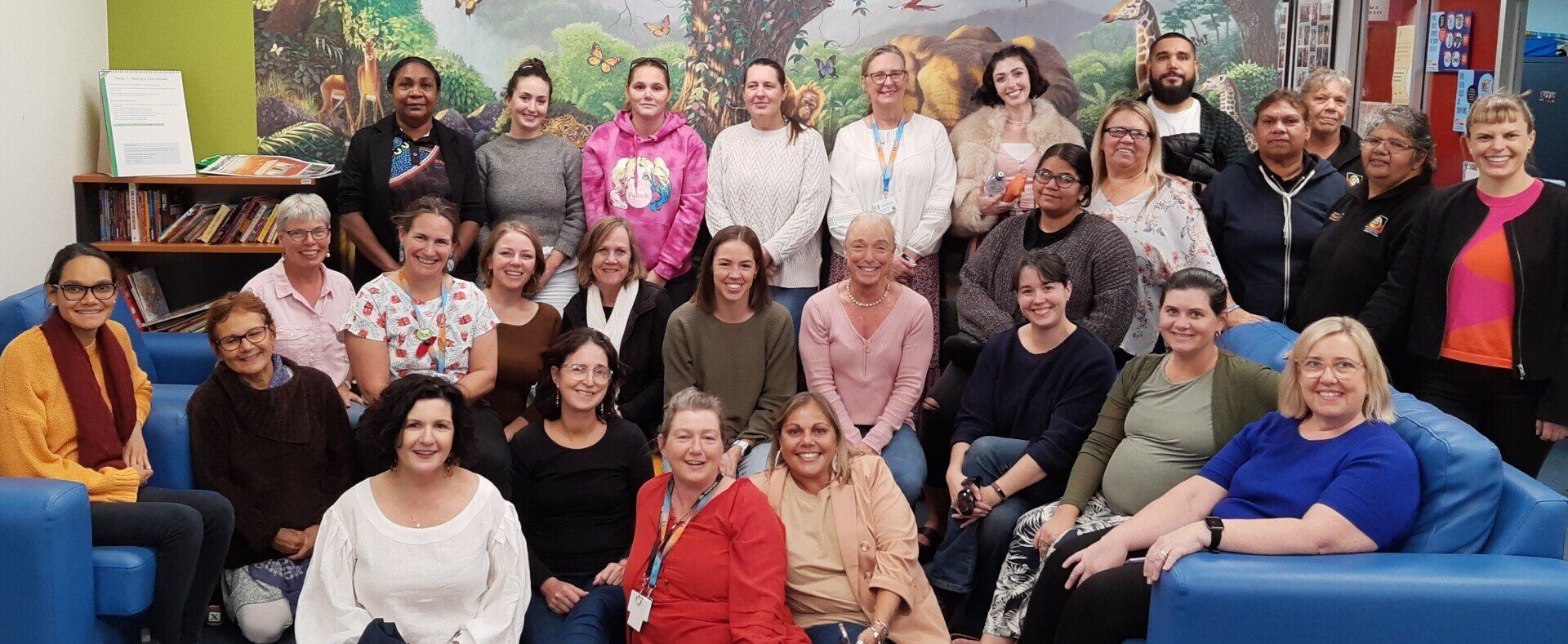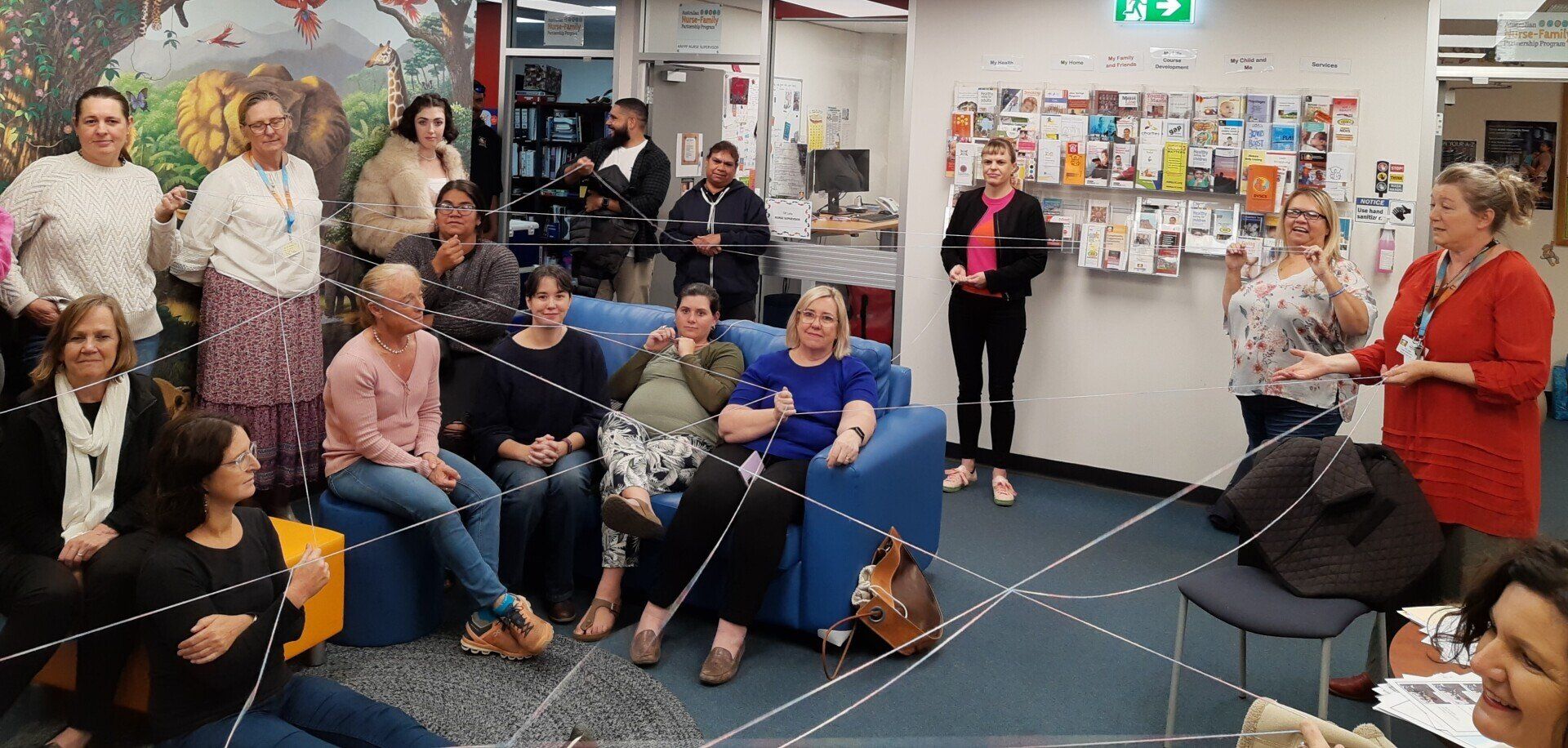Training in Alice Springs
ANFPP staff from different parts of Australia gather with the National Support Service education team for unit three training in Alice Springs.
Training in Alice Springs make teams feel connected and part of bigger vision
More than thirty staff from five different health services from all around Australia got together in Alice Springs in May to do their Australian Nurse-Family Partnerships Program unit three education.
Nurse Home Visitors (NHV), Family Partnership Workers (FPW), Educators and Nurse Supervisors attended from Wurli-Wurlinjang (Katherine), Wuchopperen Health Service (Cairns), Institute of Urban Indigenous Health (Brisbane), Nunkuwarrin Yunti (Adelaide) and Congress (Alice Springs).
Being “good enough”
Mel Ross, Nurse Home Visitor from the Congress team says one of the things she liked about the week-long training was the concept of being “good enough”.
“Just reminding our clients and ourselves that perfection is not the aim and that the main thing is that our intentions are loving and true,” says Mel.
Mel says she loved being able to meet NHVs and FPWs from all around the country. “It was my first chance to meet people from other sites and it made me feel really connected and part of a bigger vision.”
Building relationships
Emily May, Senior Practitioner - Perinatal Mental Health and Parenting helped run the week-long training.
"Unit three in Alice Springs was a fabulous opportunity for ANFPP staff from different sites, who have different roles and levels of experience, to come together for a shared learning experience,” says Emily.
“Students not only had access to in-depth training sessions, but also had the chance to connect and build relationships with one another."
Learning about how connections are made in the brain.
Supporting behaviour change
Tiff Lohs, Nurse Supervisor for Congress, in Alice Springs also attended the training sessions. She says that one of the highlights was the topic of advanced motivational interviewing.
“Because the model that we use with clients requires behaviour change, we support women to identify things they want to change in their lives," says Tiff.
“It’s about having open-ended conversations - a lot of it is about communication skills and encouraging women to explore their own thinking."
Brain development
“Emily took us through sequential modelling, which is basically how the brain develops bottom up,” says Tiff. "The work we do with parents supports that growth of children’s brains."
Tiff says they covered “how trauma impacts on children’s brain development, and how we as nurses can support healthy development, and educate parents about it.”
Tiff Lohs explains why they are holding string in the above photo: “Here we’re doing an activity that home visiting teams can do with their clients to show how connections are made in the brain. It’s fun, tactile and non-literacy based.
"You can just yarn about the baby’s brain and how that works - how play, talking to your baby, touch, music and reading are all important. And how it helps us grow connections in the brain. So this exercise is really about brain growth.”
Being part of something bigger than the program
Tiff says the biggest benefit was having staff from six different teams come together, which was “really marvellous. It was a real opportunity for everybody to feel part of something that’s way bigger than just the program."
Tiff says they also explored different processes to see how they could change what they were doing and improve.
“I think the work itself is very isolating, especially with the one-on-one clients, so it was good to look at that. Listening to other people’s stories about the work that we do with women - it makes us realise that while there are lots of differences, there are also lots of similarities. So it was a really great week.
“Many thanks to the National Support Service for bringing their A-game and providing a jam-packed stimulating week of caring, laughter and learning.”
